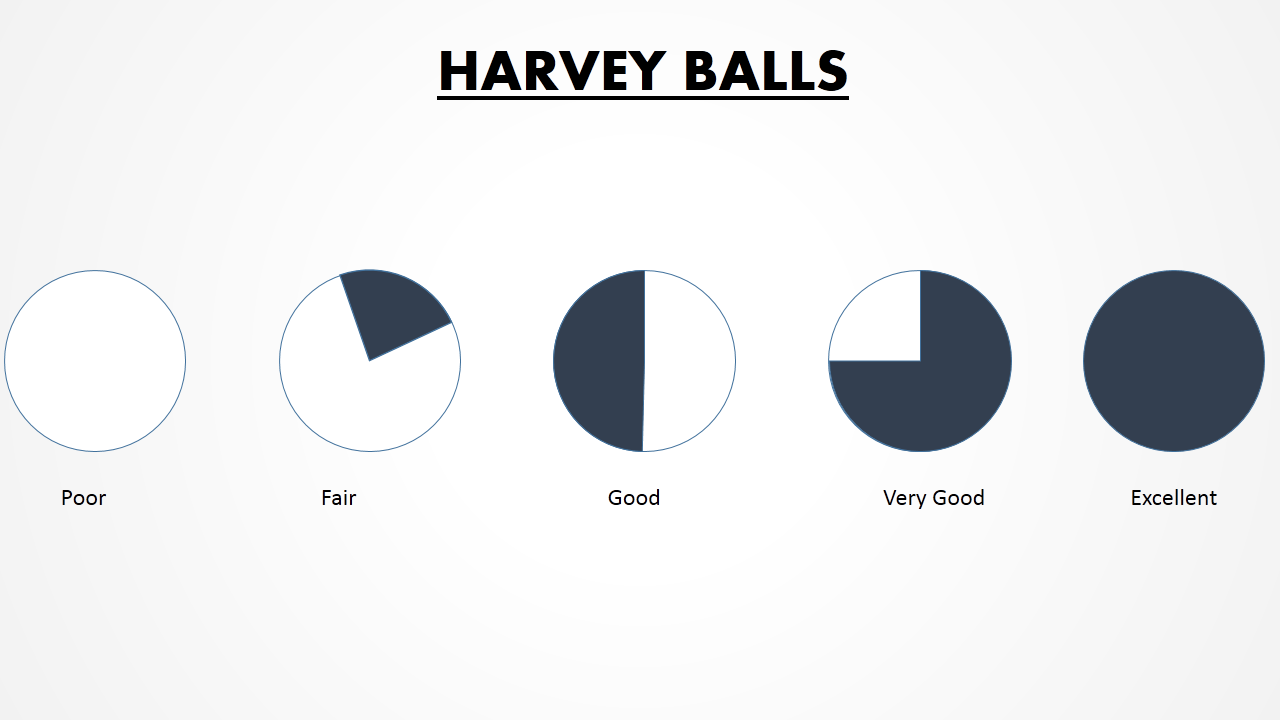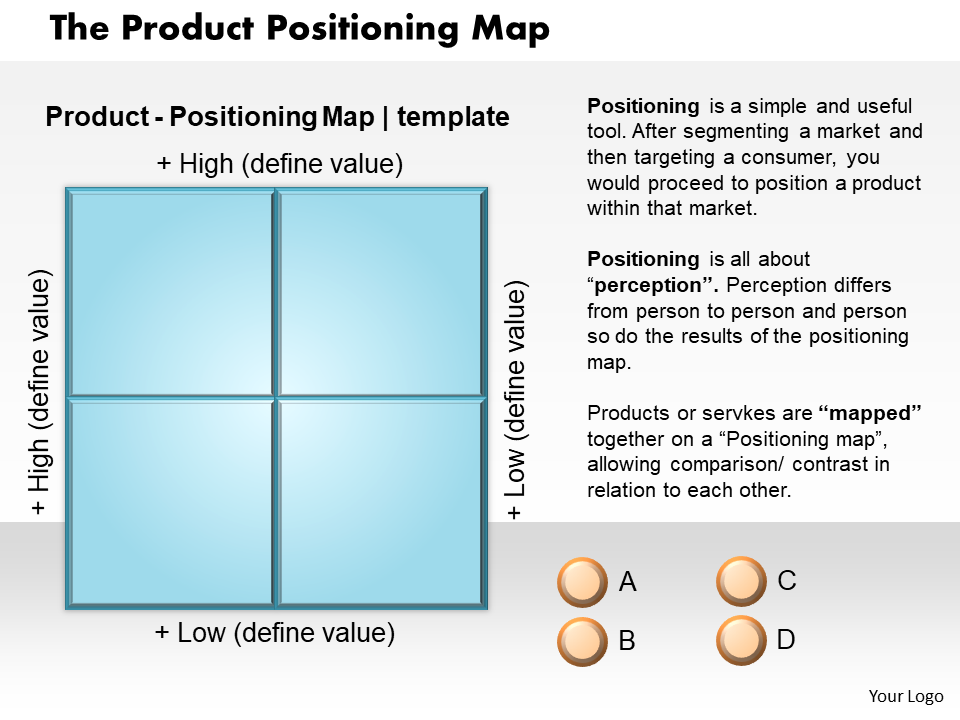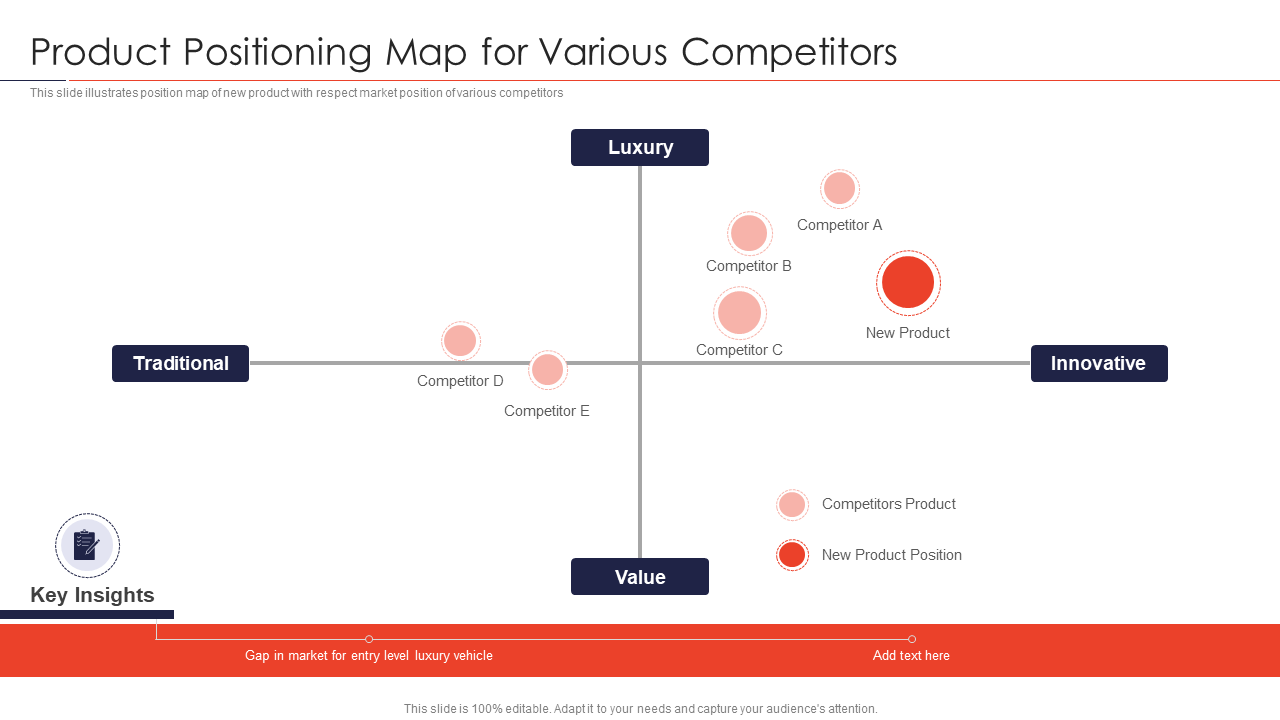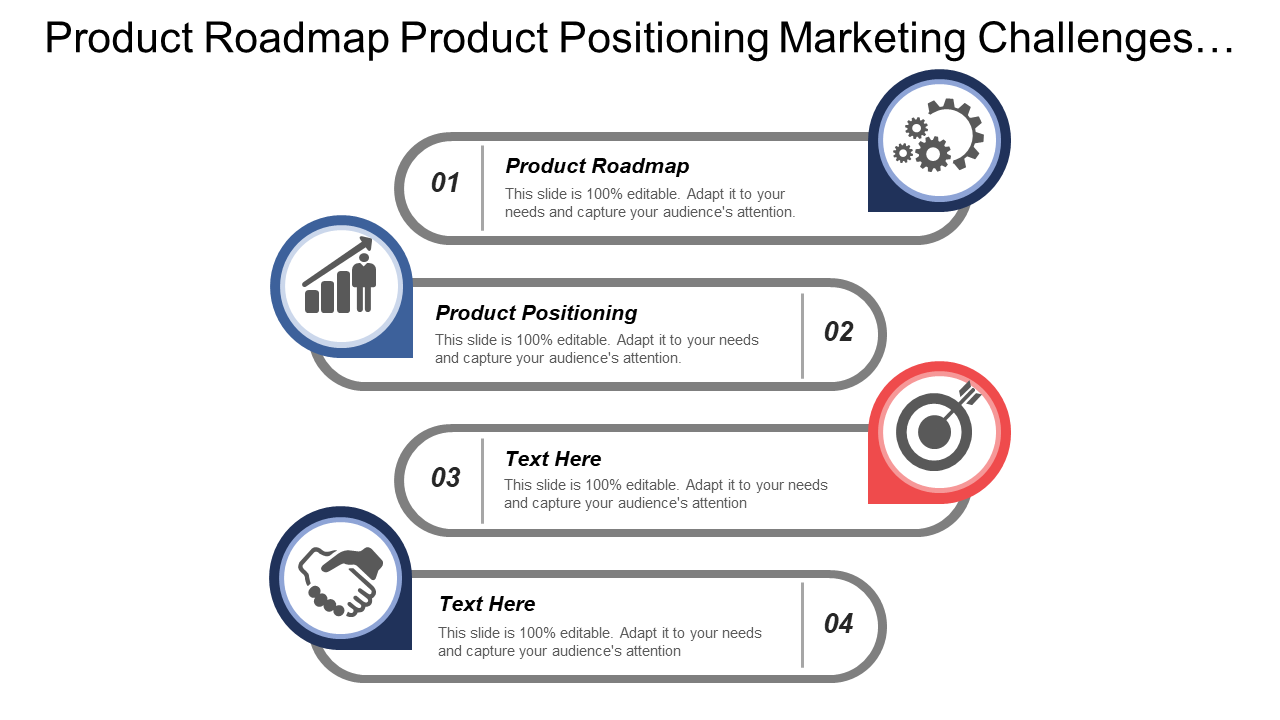Even the greatest product is useless if no one knows about it. It is, therefore, pertinent to devise a competent marketing strategy that engages customers and offers them the experience they want. A well-thought-out strategy can determine the position of a product within the market and amplify its benefits. Businesses must find the best ways to present their products and reach their target audience based on customers’ needs, competitive alternatives, the most effective communication channels, and customized messages. This requires in-depth research and analysis of the prevailing market situations and shifting consumers needs to devise marketing tactics.
One of the best marketing techniques is the application of product positioning strategies. It enables businesses to design messages that speak to the needs and desires of their customers, persuading them to make a purchase.
Product Positioning Map: A Quick Summary
It is a diagrammatic technique that businesses use to visually display where their products stand in relation to their rivals. It is about understanding the products that you decide to introduce to the masses. The way your customers perceive your brand is crucial since this define your sales volume and the profits your company will earn.
All entrepreneurs should take into account product positioning as a legitimate business need. This tool positions your product as a class apart from competition and tailors your messaging to your target market based on the advantages that they value the most. It also establishes a framework for your value proposition statement, which will direct your marketing initiatives.
This blog offers tips on how to market your product in an original manner. The key to differentiating your product is a product positioning map that answers key questions your customers might have about your product and what makes it unique. Customers’ answers drive your product’s marketing strategy.
Explore our Marketing Mix blog to plan a product or service offering that hits all the right notes with the target audience.
At SlideTeam, we have curated an array of well-researched PPTs to help you out in your journey to bring the product from pre-launch research to the market. Don’t struggle to reach your customers despite having products that meet their needs. These professionally designed Top 10 Product Positioning Map Templates give you a better understanding of consumers, product categories, and the potential opportunities for new products or new target markets.
Broadcast a distinct image of your product or service, influencing positively the way consumers perceive the product relative to competitors.
Template 1: Product Positioning Map PPT
Communicate the benefits of your product to the target audience. Use our vibrant PPT Template to identify and create a niche for the product. This well-structured template explains the dynamics of one of the most important tools in marketing. Add to it incrementally and give it the shape of your choice. This informative template is a perfect choice for presentations on product positioning maps. Deploy this concise and practical presentation tool to analyze your product’s strengths and weaknesses and assess how it stacks up against those of your rivals.
Template 2: Product Positioning Map for Product Launch Template
The first step in positioning is to identify and understand your target audience. Create an outline for new products that also explains its position in relation to your target market; standing out from competition is highlighted. Use this template to strategize the launch of a new product in the market. Create a buyer persona that considers luxury, innovation, tradition, and value using the provided slides. Modify and customize this template to meet your needs.
Template 3: Product Perceptual Map PPT
Use perceptual maps to gauge consumer perception or serve as a development roadmap for products. Use our model positioning map template to pinpoint your target market and the opportunities that exist. This two-dimensional graph, which has a pair of opposing attributes on each end of the horizontal axis (X) and a vertical axis (Y), is an essential tool for marketing research. To strengthen the position of your brand, position your products in terms of both price and quality. Download this PPT Template to see customer opinion, literally, in a new light.
Template 4: Business Product Positioning Map Template
Determine the positioning of all rival products in the market. Then, use this PowerPoint Presentation to determine public opinion and develop marketing strategies that will reach the target market, and create the most impact. This educational template is a practical tool for creating business plans. With the aid of this slide, enlist special qualities and features of your products to establish your brand’s position in the market.
Template 5: Product Positioning Map for Competitors
Use our well-structured PPT Template to visualize the competitive structure of the market through the customer’s perspective. This slide demonstrates the new product’s market positioning in relation to competitors. Use these illustrations to visualize the product launch execution plan. Use it as a tool for discussion and navigation in marketing. Understand the products associated with the listed attributes that your target segment perceives as desirable. To evaluate how customers will behave toward the products.
Template 6: Product Positioning Marketing Plan PPT
A clear positioning statement is at the core of every marketing strategy, which serves as the foundation for your brand system's visual identity and verbiage. Create the ideal marketing strategy for your company using this pre-made PPT Template. This template provides a section on key insights to summarize your findings as well as a sample to help you understand the market variables. Elevate your marketing efforts and help buyers move from the mere knowledge of your product or service to its purchase.
Template 7: Product Positioning Map and Gap Strategy
Use this premium collection of slides to discover market gaps and develop brand positions by learning how consumers feel about their brands in comparison to rivals. Consider the gaps under consideration as a missed opportunity and plan. Use these gaps as a missed opportunity because no other firm/brand is perceived to be offering the same mix of benefits and features. Visualize the product position and key in information for better assessment. Marketers are using tool to pinpoint the most valuable customers to target with customized products and advertising.
Template 8: Product and Brand Positioning Map PPT
Identify the brands of your closest competitors, as well as their comparative advantages and disadvantages. This presentation template helps you spot market opportunities, areas of competitive advantage, and how change works in a rapidly-shifting marketplace. Learn more about the organization’s branding and see how your product is performing in the context of your customer expectations. Take advantage of it to make strategic judgments that impact profit, risk, and pricing.
Template 9: Strategic Positioning Map for Product Planning
Narrow down your competitive advantage and unique selling point to form the basis of your product positioning strategy. Use this sample set of slides to highlight the features/benefits of your product that set it apart from the offerings of your customers. You can use this graphic as a reference tool throughout the lifecycle of your product.
Template 10: Product Positioning Roadmap PPT for Brands
Create a positioning road map for your brand using this pre-made PPT Template. With the aid of this brand roadmap, businesses can better position themselves and their messages in markets where the main constant is change. Use this visual representation to demonstrate your successes since launch and the time you need for market penetration. Using the earmarked buyer personas, use this graphic as a strategy to plan a launch that reaches the right audience. A download of this presentation template offers you the functionality to record and schedule all cross-functional tasks necessary to start a new customer experience.
Mapping Your Competitive Position
Companies use positioning strategies according to their own sweet will and appetite to deal with the customer. You can use a product positioning map to compare your product to all of its competitors in the market from the viewpoint of your target market. This kind of map can be made quickly and accurately. Select a PPT Template from our collection to compare the strengths of your offering to every rival's weakness. These templates are here to assist you in finding a market niche, capitalizing on it, and producing a product that your rivals won't be able to match.
Re-evaluate your brand’s strategies by tweaking these one-page brand strategy templates as your mantra to success.
PS. Take advantage of our creative positioning strategy templates to achieve a better rapport within your niche as well.
FAQs ON PRODUCT POSITIONING MAP
How do you create a product positioning map?
Understanding where your product fits in the market is critical to its success. A product positioning map arranges goods and services according to two or more criteria, such as value or price, on a grid. These two variables are chosen based on how important they are to the target market and placed on the X- and Y-axes, respectively. Then, positions of the available rival products are plotted in accordance with how well they meet the two criteria. This enables a marketer to identify any gaps in the market and potential niches for his/her products or services.
What are the 4 types of product positioning?
Product positioning is all about how you want your target market to perceive your product. It also calls for you to explain how your product can outperform its rivals in terms of how well it serves the needs of your customers. The type of product positioning depends on the preferences and requirements of your target market. The most commonly used positioning strategies are:
A) Price-based positioning
Offering your goods at a competitive or lower price compared to competitors on the market is known as price-based positioning. And the majority of the time, customers select these goods solely on the basis of price, without weighing their options or doing any comparison shopping.
B) Lifestyle-based positioning
Associating their product with a specific usage or way of life allows brands to define and refine their market position. Although features in products may be the same or similar, the advantages of using those features will be described (positioned) in a different manner.
C) Characteristics-based positioning
Reliability, performance, efficiency, sustainability, aesthetics, and novelty are all qualities that contribute to a product’s distinctive positioning. By positioning your product based on these qualities, you can encourage customers to form an opinion about your brand and what it stands for.
D) Quality- or prestige-based positioning
When brands choose not to compete on price, they adopt a strategy known as prestige positioning. They use their higher fee to signal that the product is of a higher caliber or status.





 Customer Reviews
Customer Reviews

























